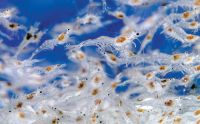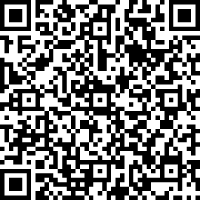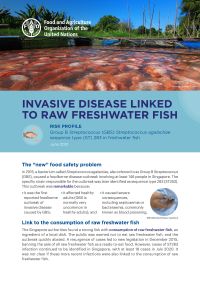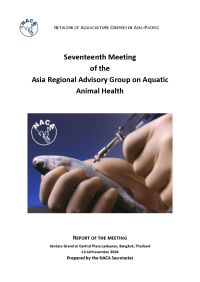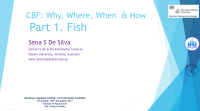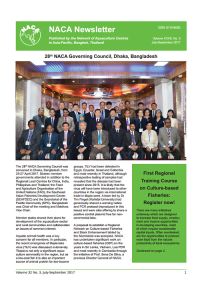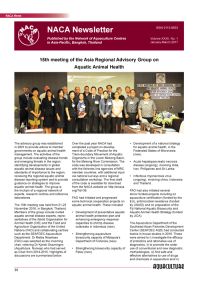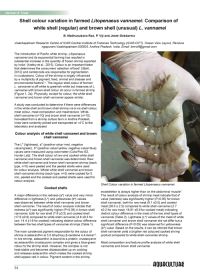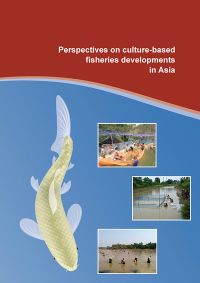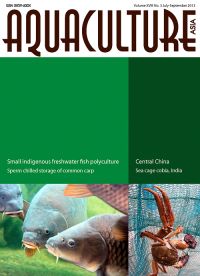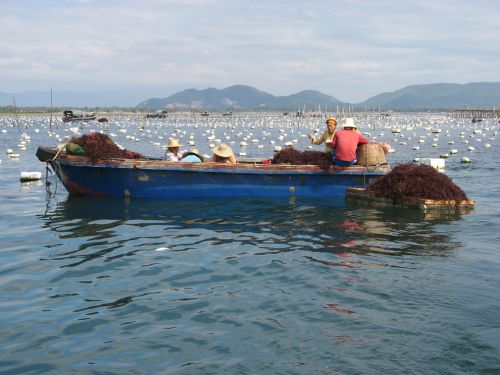
Food safety is a key concern for international trade in fish products. The constantly changing regulatory environment and safety requirements of importing countries pose a special challenge to small-scale aquaculture producers.
The programme assists members to assure the safety and quality of aquaculture products through the adoption of science-based better management practices. Policy issues concerning aquaculture certification and activities in market access are also addressed.
The programme focuses on assisting small-scale farmers to adapt to the changing trade and safety environment. Cluster-based management approaches and formation of farmer societies are promoted as practical mechanisms for implementation of better management practices.
Key activities
- Evaluation of commodity-specific better management practices for meeting domestic and international food safety standards.
- Facilitating establishment of national residue testing and monitoring programmes and sharing of information amongst member countries.
- Improving access to markets by small-scale farmers.
- Improving market development for low-cost aquaculture commodities.
- Address biosecurity and associated human health issues regarding the consumption of fish and processed products.
- Development of farmer groups and cluster-based certification concepts and methodologies.
Creative Commons Attribution.

